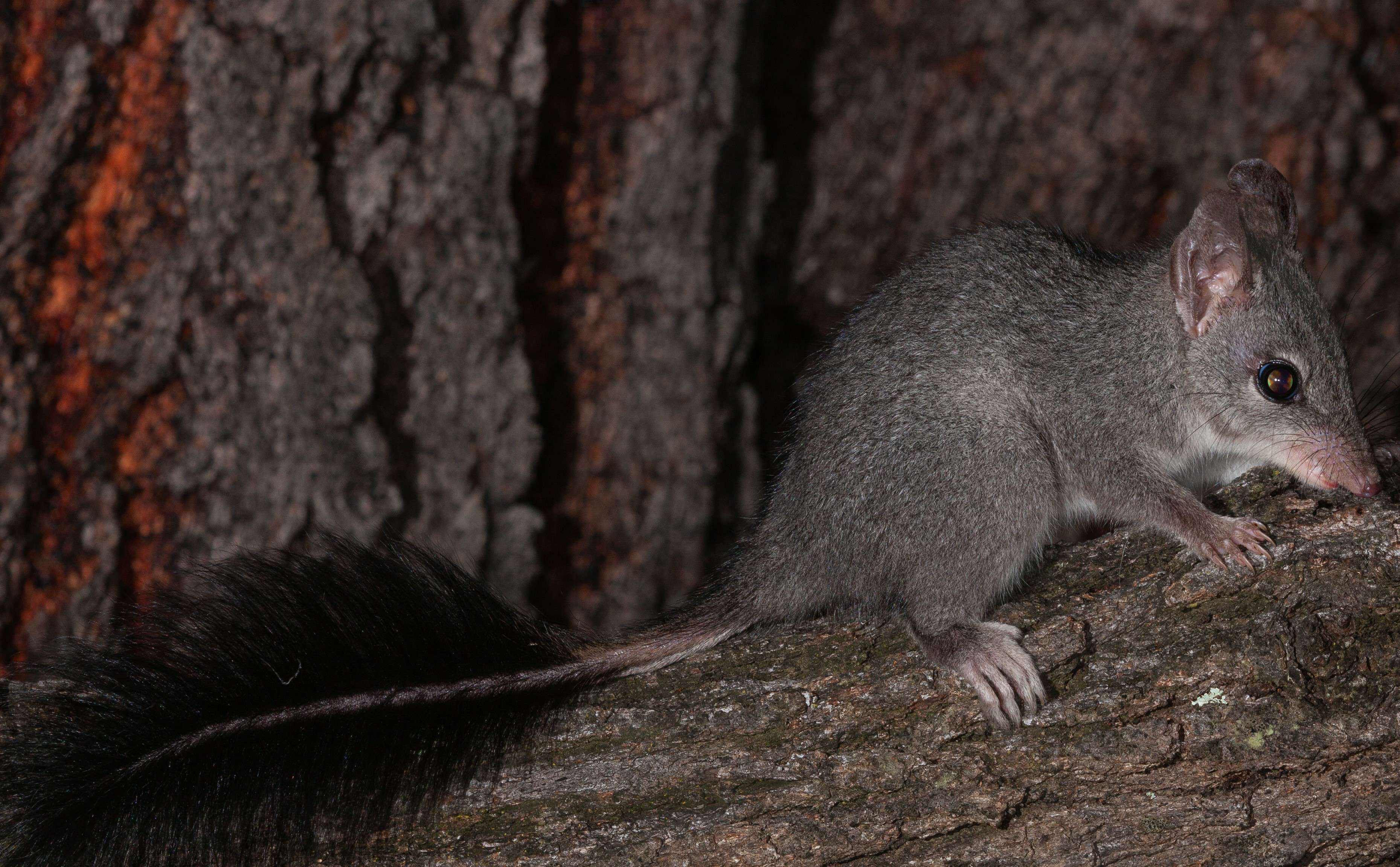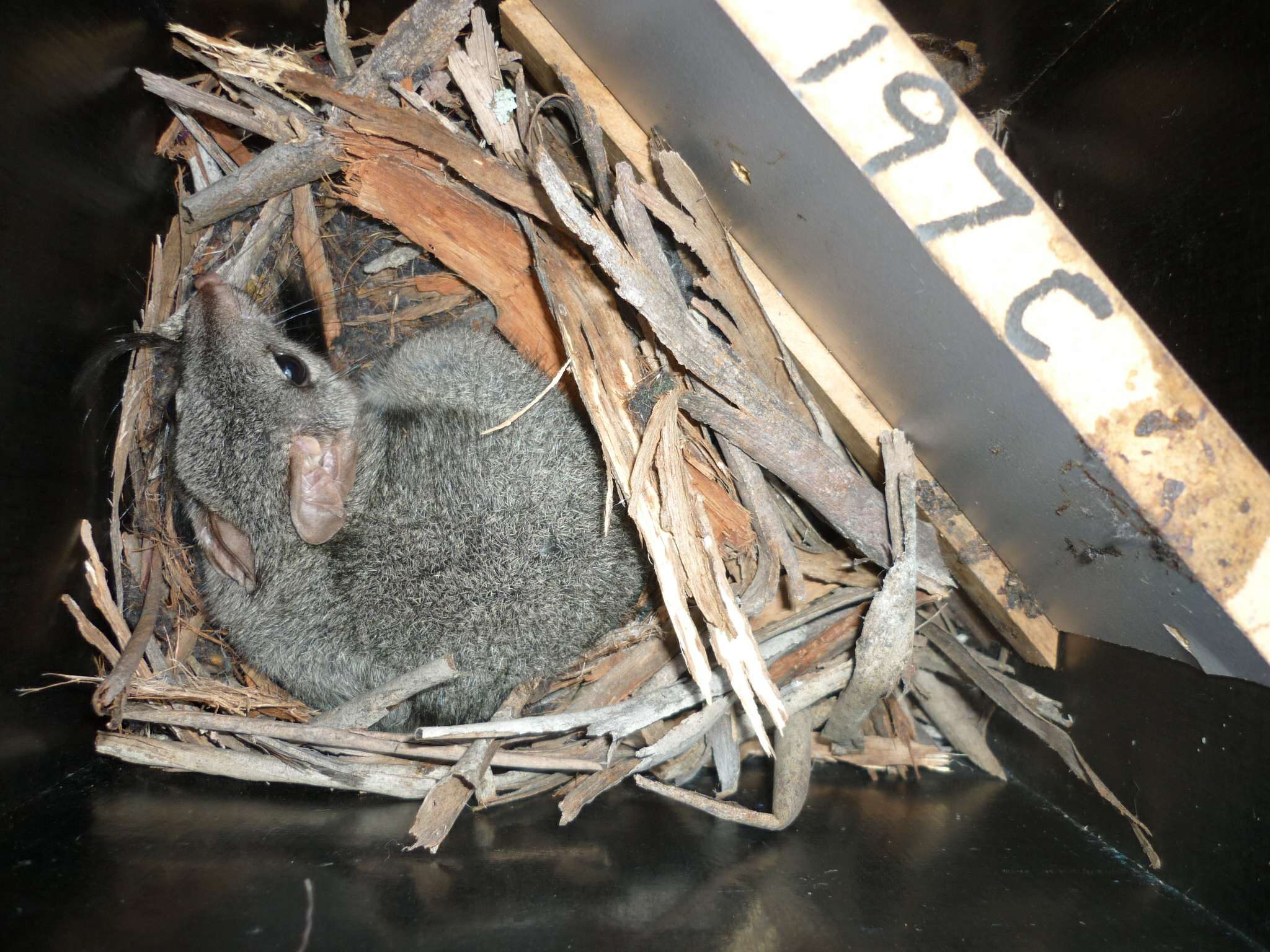The Brush-tailed Phascogale is the Catchment Critter of the Month as part of the Goulburn Broken Catchment Management Authority’s Our Catchments Our Communities Taking Care of Country project, funded by the Victorian Government.
The Brush-tailed Phascogale (Phascogale tapoatafa) shares its family tree with other members of the carnivorous marsupial Dasyuridae family such as dunnarts, antechinus and quolls.
Goulburn Broken CMA project officer, Janice Mentiplay-Smith, said the Brush-tailed Phascogale was nocturnal and primarily arboreal, meaning it relies on healthy, connected forests and woodlands so it can travel through the treetops to search for nectar, insects, spiders, centipedes and bird eggs.
“As a hollow-dependent species, the Brush-tailed Phascogale will use several tree hollows in which to nest and shelter during the day,” Ms Mentiplay-Smith said.
“This is possibly a predator evasion tactic but means the demand for nest hollows is further exacerbated. Where natural hollows no longer exist, it readily uses artificial nest boxes.
“It’s easy to determine if a nest box is being used by either a glider or a phascogale: Gliders build their nest out of fresh leaves and keep their nest box clean, whereas a Brush-tailed Phascogale constructs its nest out of a variety of materials – mainly stringybark but also animal hair, feathers, snakeskin, and even the desiccated bodies of dead animals.
“Their habit of using the corner of their nest box as a toilet also gives the nest box a unique phascogale odour.”
Ms Mentiplay-Smith said nest boxes were readily sought out and used by a variety of native animals so if you live in a woodland or forested area, installing nest boxes on your property is one of the most immediate ways you can benefit wildlife.
“As with its relatives, the antechinus and dunnarts, the Brush-tailed Phascogale leads a short, fast life. After mating in late autumn to early winter, the male perishes. As he is around just one-year-old, this makes the Brush-tailed Phascogale the largest known mammal to die after its first and last breeding season,” she said.
“The female raises her five to eight young from mid-June to early August, firstly within their pouch - a fold of skin on her belly rather than a true pouch - for seven weeks and then within the nest until the joeys are five months old. A female will sometimes raise two litters in her lifetime. She typically dies before turning turn two years old.”
Along with habitat destruction and predation by foxes and cats, the loss of hollow-bearing trees poses the greatest threat to the Brush-tailed Phascogale. So much so that the loss of hollow bearing trees has been listed as a potentially threatening process in the Flora and Fauna Guarantee Act 1988, due to the dependence on this habitat by so many native species.
Read more about the Brush-tailed Phascogale and other mammal species of the Goulburn Broken catchment in The Mammal Book a 58-page booklet featuring beautiful photos and informative text: The Mammal Book - GB CMA - Goulburn Broken CMA

The Brush-tailed Phascogale is one of the nocturnal, native marsupials living in the Goulburn Broken catchment. Photo: Russell Jones.

The Brush-tailed Phascogale will readily make a home in a nest box. Photo: Orlando Talamo.